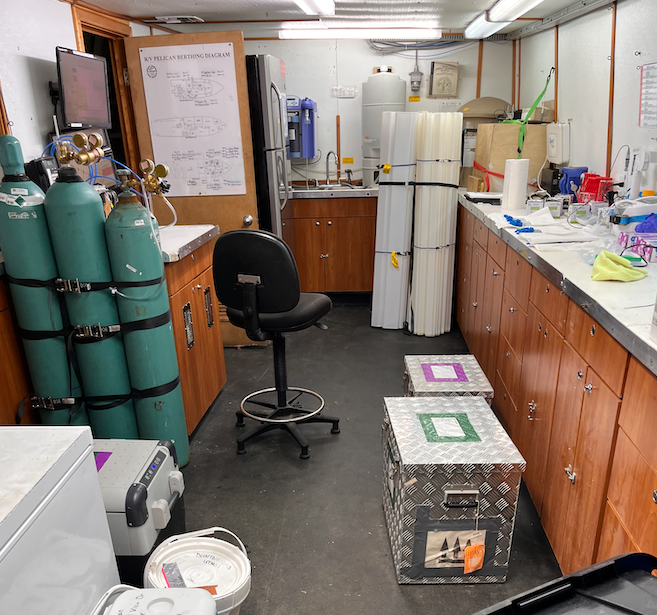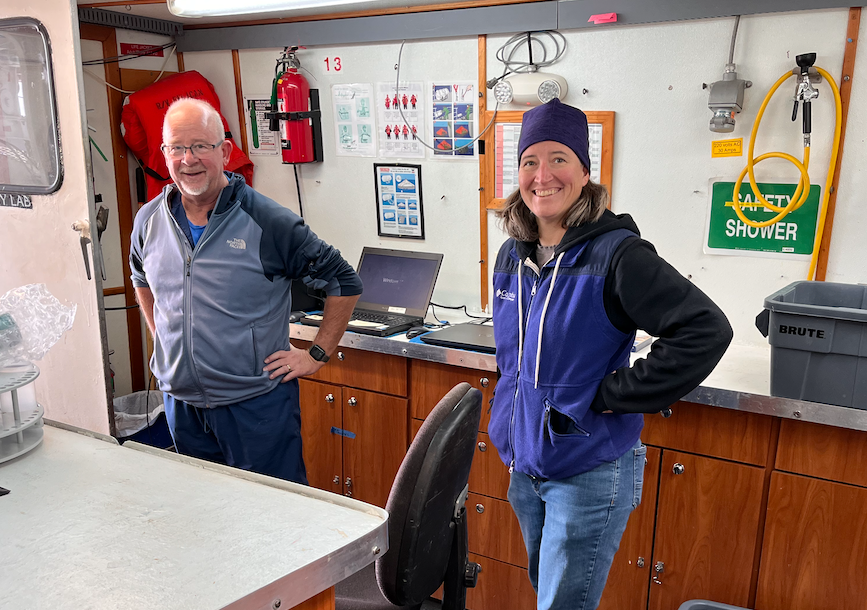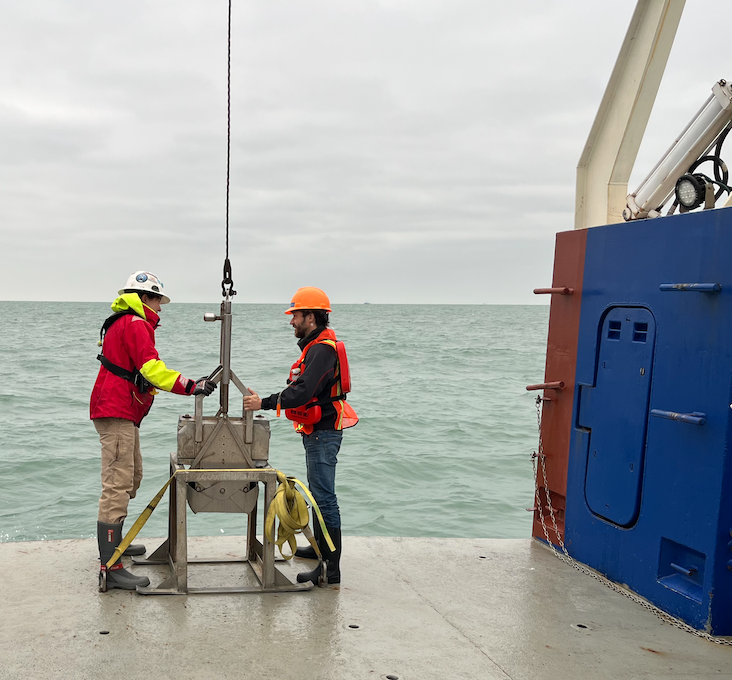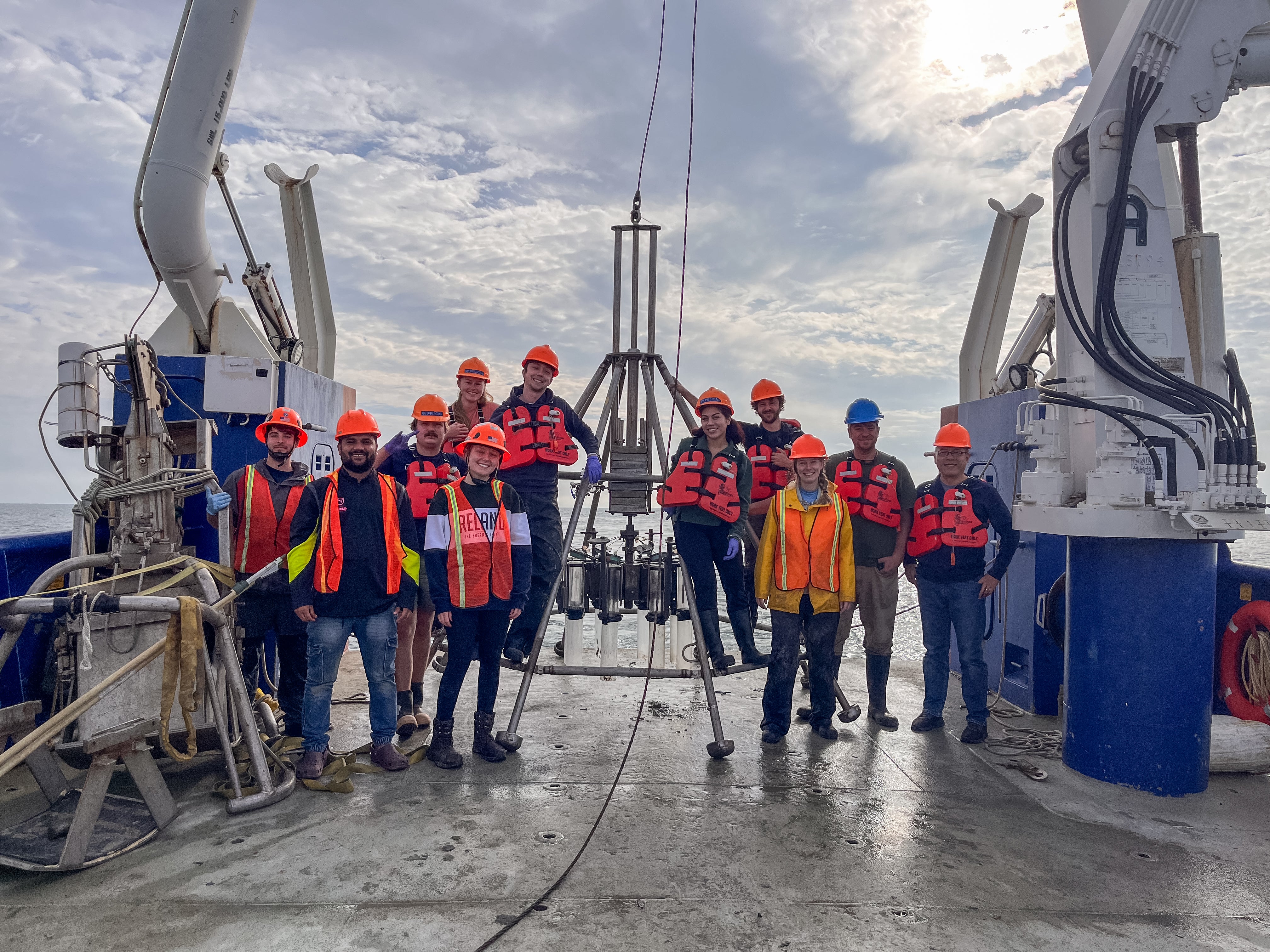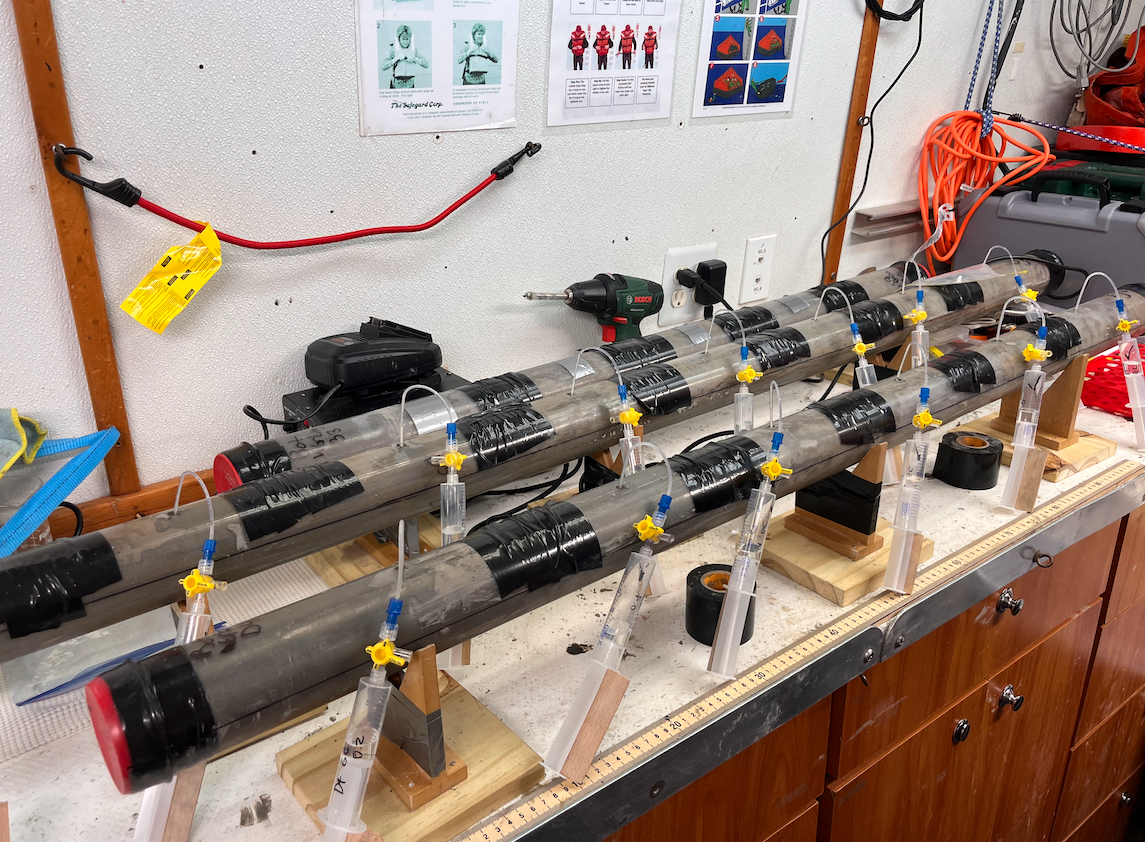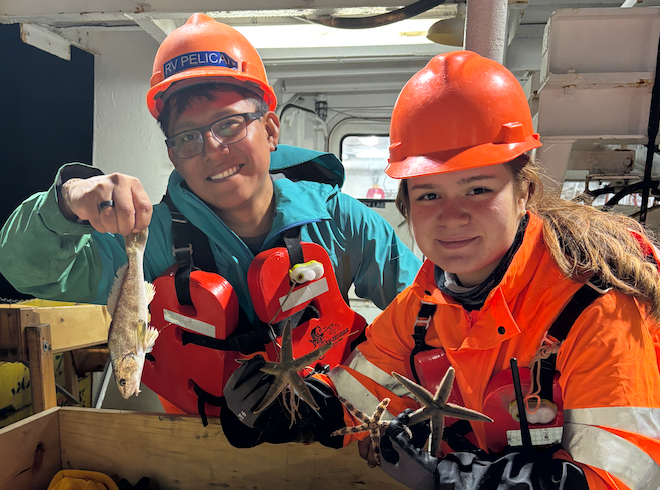Texas Estuarine Coastal Exchange (TEX-ECE)
Several faculty members, technicians, and students from The University of Texas Marine Science Institute (UTMSI) will participate in this multidisciplinary expedition to understand how water moves between the ocean and bays along the Texas coast—especially through Aransas Pass. The first of several cruises will be aboard the R/V Pelican. Together, they will investigate how sediments, ocean conditions, and marine organisms interact offshore of Mustang and San José Island, Texas. This collaborative effort will provide new insights into coastal ecosystem processes and how they respond to environmental change.
Texas Estuarine Coastal Exchange (TEX-ECE) Logistics
Texas Estuarine Coastal Exchange Dispatches
This section will feature updates and reflections from the Texas Estuarine Coastal Exchange Expedition, with cruise images located in the image gallery beneath the research overview.
Dispatch One
December 2, 2025
We spent the entire day driving in convoys from Port Aransas to the Martin Energy dock on Harbor Island to transport equipment, research supplies, and cruise participants to the RV Pelican. We were joined by participants of the second leg who wanted to see the layout of the ship and to assist with the planning of their work.
By the end of the day, the Dry Lab, Wet Lab, and outdoor deck areas, where almost all the research and sampling work will be done during the Sediment Leg, had been set up and research materials stowed away and secured for tomorrow’s departure.
Of the 14-member scientific crew, all but three members spent the night on the RV Pelican to have more time to prepare for tomorrow’s departure and sampling.
Dispatch Two
December 3, 2025
Approximately half of the scientific crews experienced signs of mild to severe seasickness throughout the day. Wave heights only 3-4 ft, but at an unfavorable angle and amplitude that caused unpleasant “roll”.
All sediment sampling and porewater sampling completed by late evening (11pm), except for two of the Dorgan lab’s cores.
Science-unrelated:
- We enjoyed delicious pulled pork bbq with baked beans for lunch. The food has been excellent and everyone is enjoying the meals.
- The morale of the troupe has been good, despite the challenges faced due to seasickness and it being the first day of sampling, where work flows have to still be adjusted and optimized.
- A Common Nighthawk visited us for some time (~15 mins), actively circling around the ship and putting on cool displays.
Dispatch Three
December 4, 2025
In the end, rough weather forced us to, after the successful coring, stop operations after the benthic grab and conductivity, temperature, depth (CTD) sampling.
Instead, we headed closer to shore in the hope for calmer conditions, which ended up being the right choice. This allowed us to complete the sampling of sediment cores.
Operations were completed around 8:30am on December 5.
Dispatch Four
December 6, 2025
Perfectly calm conditions that were excellent for coring. Packing in preparation for arrival at Martin Energy dock tomorrow in the early am.
December 7, 2025
Arrival and change in crew to Leg 2 “water column and biota crew”, 6am to 12 pm.
Research Overview
This research expedition investigates the physical, chemical, and biological processes that shape coastal ecosystems offshore of Mustang and San José Island. During the Sediment Leg, scientists will study the seafloor to understand how mud, sand, organic matter, and microbial communities record environmental change over time. Sediment cores and samples collected across the study area will reveal carbon storage, sediment structure, ancient and modern DNA, and the diversity of microbes and small animals living within the seafloor. Seismic surveys will further uncover the layering and geological history beneath the seabed. If time permits, additional sediment cores will be collected in deeper offshore waters.
During the Water Column and Biology Leg, researchers will focus on the ocean above the seafloor. Instruments lowered through the water column will measure temperature, salinity, oxygen, and other characteristics that define marine habitats. Water samples will be collected to analyze nutrients and carbon, and zooplankton will be gathered to study the tiny drifting animals that support the food web. Mud and small organisms from the seafloor will also be collected to link biological patterns with environmental conditions throughout the region.
Throughout both legs, the ship’s flow-through seawater system will collect continuous measurements of inorganic carbon as the vessel moves between sampling sites and in and out of Port Aransas. These real-time data help scientists track changes in water chemistry and connect underway conditions with the samples collected onboard.
This expedition is funded in part by the Texas Gulf Coast Research Center.

